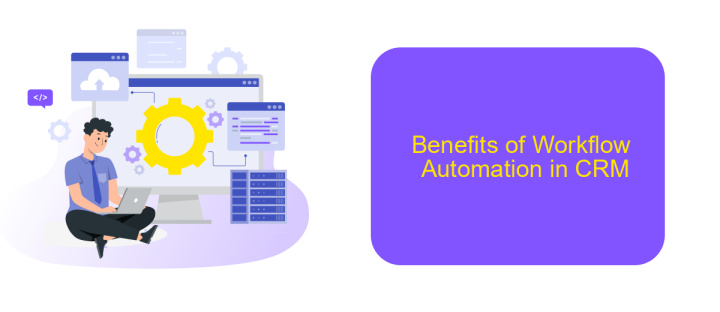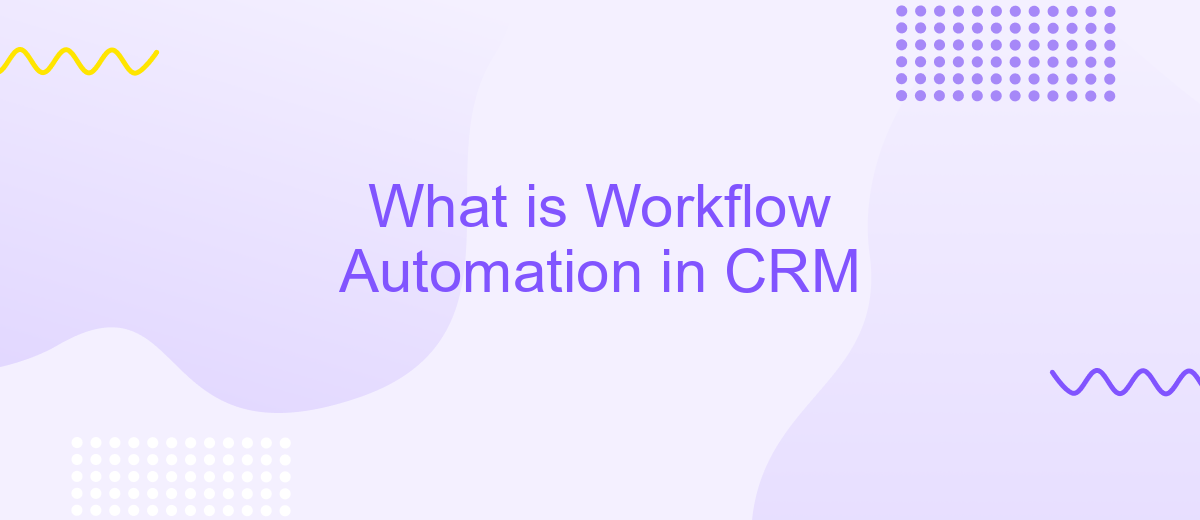What is Workflow Automation in CRM
Workflow automation in Customer Relationship Management (CRM) systems revolutionizes how businesses manage their processes and interactions. By automating repetitive tasks, it enhances efficiency, reduces errors, and frees up valuable time for employees to focus on strategic activities. This article delves into the fundamentals of workflow automation in CRM, exploring its benefits, applications, and how it can transform your business operations.
Introduction
Workflow automation in CRM systems is a transformative approach that streamlines business processes, reduces manual effort, and enhances productivity. By automating routine tasks, companies can ensure consistency, minimize errors, and free up valuable time for employees to focus on more strategic activities.
- Automates repetitive tasks
- Ensures data accuracy and consistency
- Improves customer relationship management
- Enhances efficiency and productivity
One of the key benefits of workflow automation in CRM is the ability to integrate various tools and services seamlessly. For instance, ApiX-Drive offers a comprehensive solution for connecting different applications and automating workflows without the need for coding. This integration capability allows businesses to synchronize data across platforms, streamline operations, and provide a more cohesive customer experience.
What is Workflow Automation?

Workflow automation refers to the use of technology to streamline and automate repetitive tasks and processes within an organization. By implementing workflow automation, businesses can reduce manual effort, minimize errors, and increase efficiency. This involves setting up a series of automated actions that are triggered by specific events or conditions, ensuring that tasks are completed consistently and on time.
In the context of CRM systems, workflow automation can significantly enhance customer relationship management by automating tasks such as data entry, follow-up emails, and lead nurturing. Tools like ApiX-Drive can be instrumental in this process, as they allow for seamless integration between different applications and services. With ApiX-Drive, businesses can easily connect their CRM with other tools, ensuring that data flows smoothly and actions are triggered automatically, thereby optimizing overall workflow efficiency.
How Does Workflow Automation Work in CRM?

Workflow automation in CRM streamlines and optimizes various business processes by automating repetitive tasks, allowing teams to focus on more strategic activities. This involves setting up rules and triggers that automatically execute specific actions based on predefined criteria.
- Identify repetitive tasks that can be automated, such as data entry, follow-up emails, or lead assignment.
- Define rules and triggers within the CRM system. For example, when a new lead is added, an automated welcome email is sent.
- Utilize integration tools like ApiX-Drive to connect different applications and services, ensuring seamless data flow and synchronized operations.
- Monitor and adjust the automation workflows to ensure they are functioning as intended and making necessary improvements over time.
By leveraging workflow automation in CRM, businesses can enhance efficiency, reduce errors, and improve customer satisfaction. Tools like ApiX-Drive facilitate the integration of various platforms, making it easier to automate complex workflows and keep all systems in sync. This leads to more streamlined operations and better resource allocation.
Benefits of Workflow Automation in CRM

Workflow automation in CRM significantly enhances business efficiency by streamlining repetitive tasks and reducing manual errors. This allows teams to focus on more strategic activities, improving overall productivity and customer satisfaction.
Implementing workflow automation can also lead to faster response times and more consistent follow-ups, ensuring that no customer request or inquiry falls through the cracks. This consistency builds trust and strengthens customer relationships.
- Increased efficiency and productivity
- Reduced manual errors
- Faster response times
- Consistent follow-ups
- Enhanced customer satisfaction
Integrating various tools and services into your CRM is made easier with platforms like ApiX-Drive, which facilitate seamless data transfer and synchronization. This further optimizes the workflow, allowing businesses to maintain a cohesive and efficient operational environment. With these benefits, workflow automation in CRM becomes an indispensable asset for modern businesses.
Best Practices for Implementing Workflow Automation in CRM
When implementing workflow automation in CRM, it's crucial to start by clearly defining your business processes. Document each step and identify repetitive tasks that can be automated. This will help you understand the specific requirements and choose the right tools. Additionally, ensure that your team is trained and comfortable with the new system to maximize efficiency and minimize resistance to change.
Integration is another key aspect. Utilize services like ApiX-Drive to seamlessly connect your CRM with other tools and applications. This will ensure a smooth flow of data and enhance overall productivity. Regularly monitor and review the automated workflows to identify areas for improvement. Fine-tuning your automation processes will help you adapt to evolving business needs and maintain optimal performance.
FAQ
What is workflow automation in CRM?
How does workflow automation benefit a business?
Can small businesses benefit from CRM workflow automation?
What types of tasks can be automated in a CRM system?
How can I integrate workflow automation into my existing CRM?
Apix-Drive will help optimize business processes, save you from a lot of routine tasks and unnecessary costs for automation, attracting additional specialists. Try setting up a free test connection with ApiX-Drive and see for yourself. Now you have to think about where to invest the freed time and money!

